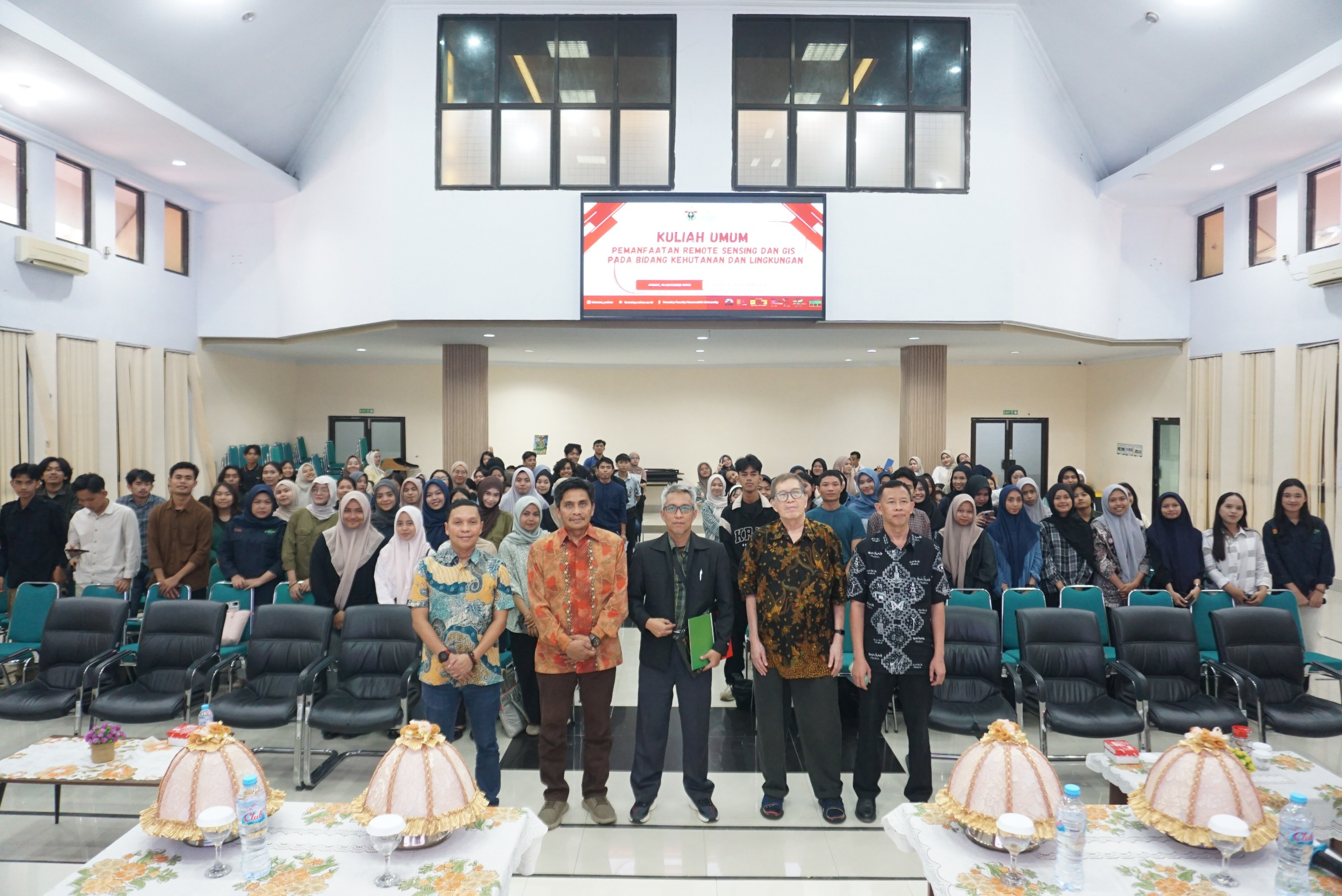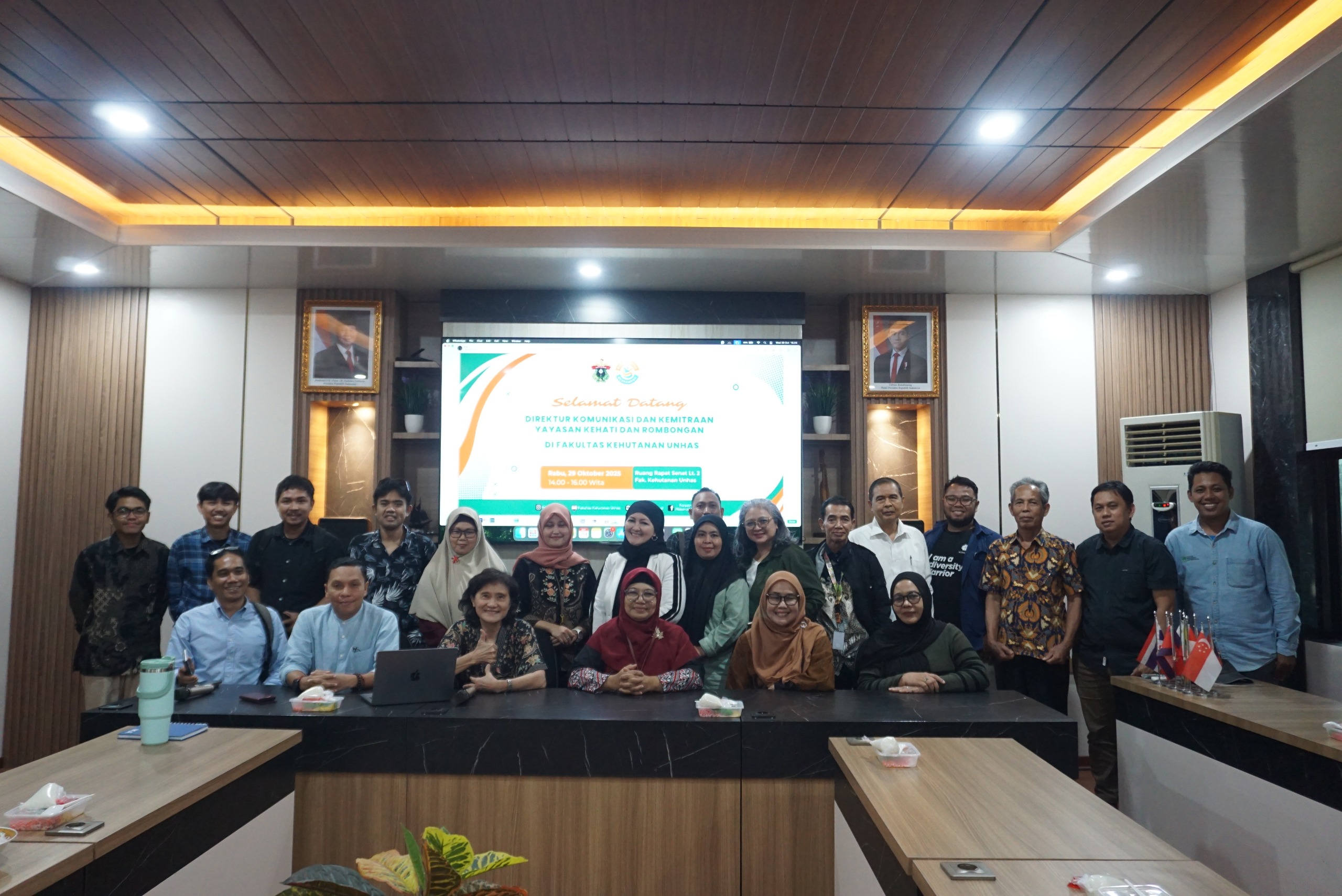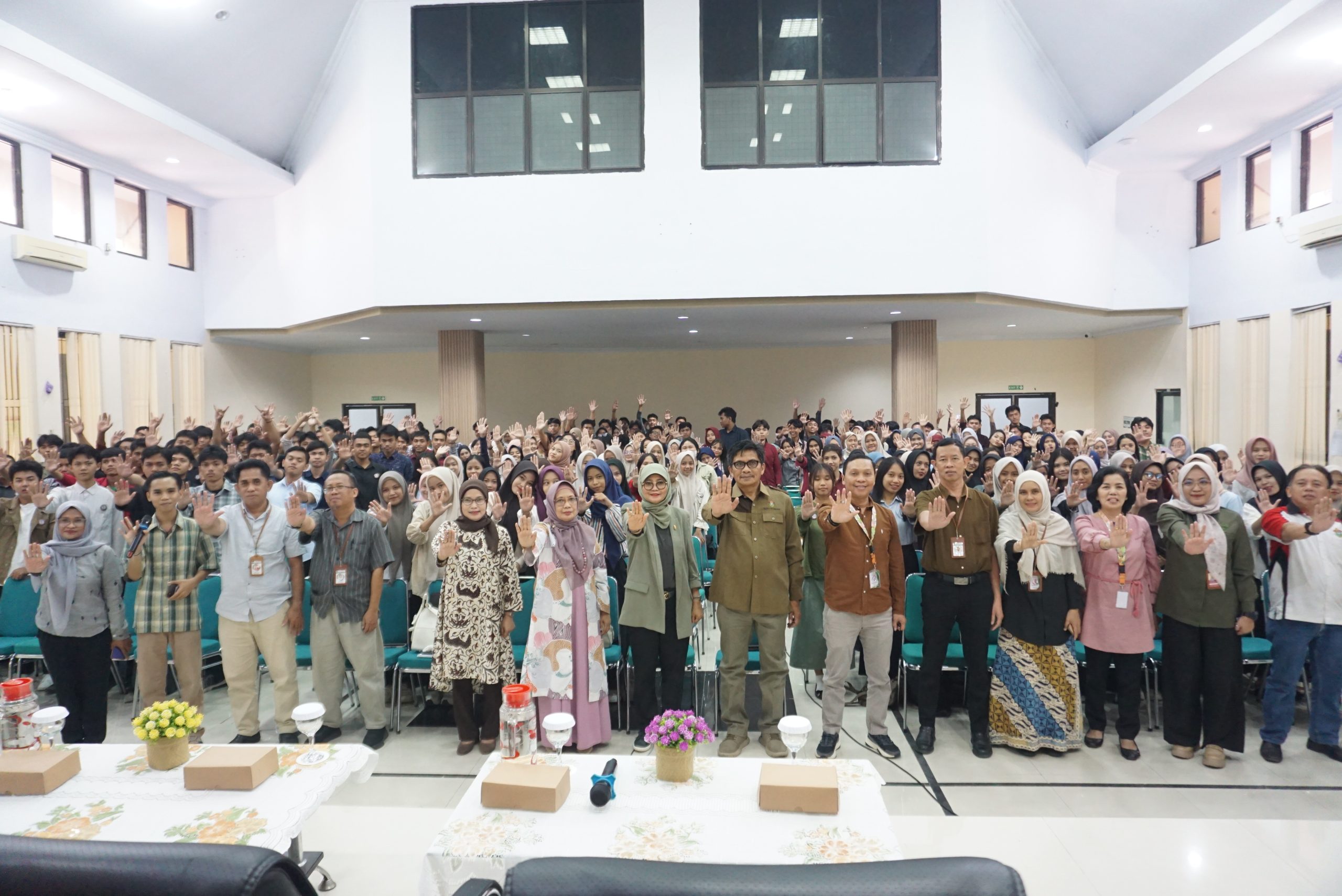Palopo. The Faculty of Forestry, Hasanuddin University (Unhas) carried out planting activities of 220 tree seedlings at the Abu Bakar Ash-Shiddiq Anabanua Islamic Boarding School, Tahfidz Al-Qur’an Wahdah Islamiyah Anabanua Middle School, Wajo Regency. This activity is a humaniversity program of the Faculty of Forestry, Unhas, taking place starting at 10.00 WITA, in Kab. Wajo, Wednesday (30/11/2022).
The types of tree seeds planted are mangosteen, rambutan, durian, mango and avocado.
The symbolic planting of tree seedlings was carried out by the Deputy Dean for Partnership, Research and Innovation, Faculty of Forestry Unhas (Dr. Ir. Astuti, S.Hut., M.Si., IPU.), Principal of SMAS Tahfidz Al-Qur’an Wahdah Islamiyah Anabanua (Muh. Ilyas, S.Pd., Gr.) and Chairman of UPT KPH Awota Kab. Wajo (Sukri, S.P. M.Si.).
Several students from the Faculty of Forestry, Unhas and students from the Abu Bakar Ash-Shiddiq Anabanua Islamic Boarding School, Tahfizh Al-Qur’an Wahdah Islamiyah Anabanua Middle School and High School also carried out the planting.
After planting, the activity then continued with socialization on silkworm cultivation by UPT KPH Awota and the introduction of organic fertilizer by the Faculty of Forestry, Hasanuddin University.
The socialization material for silkworm cultivation was delivered directly by Minarni, S.Hut. (UPT KPH Awota staff). In the material, it was stated that the initial stage carried out in cultivating silkworms was planting mulberries, because mulberries are the only food (feed) for silkworms.
“Silkworm cultivation is a business that has the potential to generate quite large profits. I hope that students and pupils of the Abu Bakar Ash-Shiddiq Anabanua Islamic Boarding School, Tahfizh Al-Qur’an Wahdah Islamiyah Anabanua Middle-Senior High School can become silkworm entrepreneurs,” explained Minarni.
Dr. Ir. Astuti, S.Hut., M.Sc., IPU. presented material related to the introduction of organic fertilizers, in the material it was stated that organic fertilizer is fertilizer composed of living creature material, such as weathered remains of plants, animals and humans.
“Organic fertilizer is very good for soil fertility because it contains nutrients, where nutrients are one of the chemical elements that plants need to fulfill their physiological needs,” explained Dr. Astuti.
Some of the benefits of organic fertilizer are: (1) Increasing soil fertility, (2) improving the physical chemical and biological conditions of the soil, (3) Safe for humans and the environment, (4) Increasing plant production, (5) Controlling certain diseases.
After presenting the socialization material, the activity then continued with a question and answer session and group photos.
Activities continued smoothly until 12.00 WITA.






